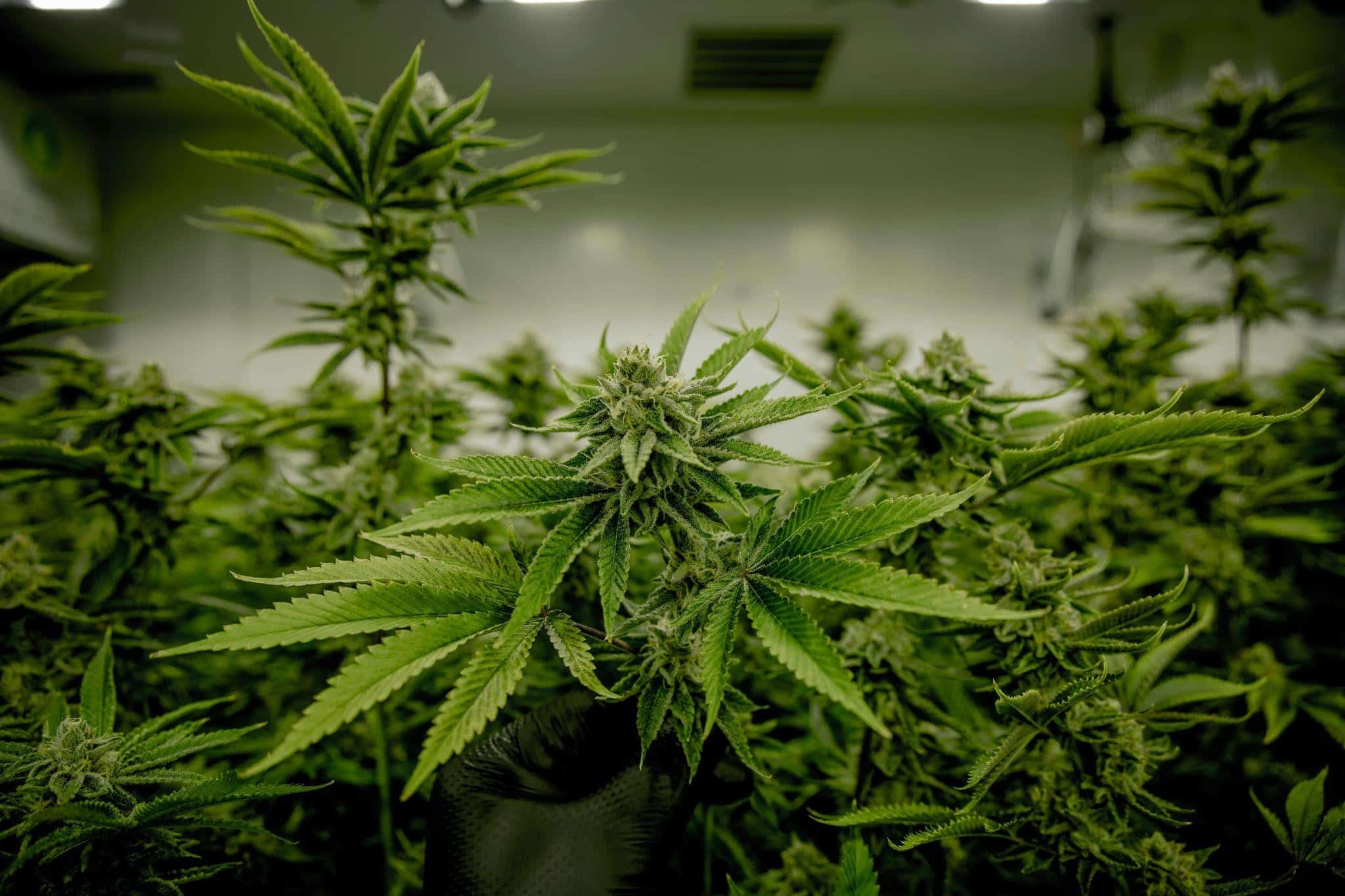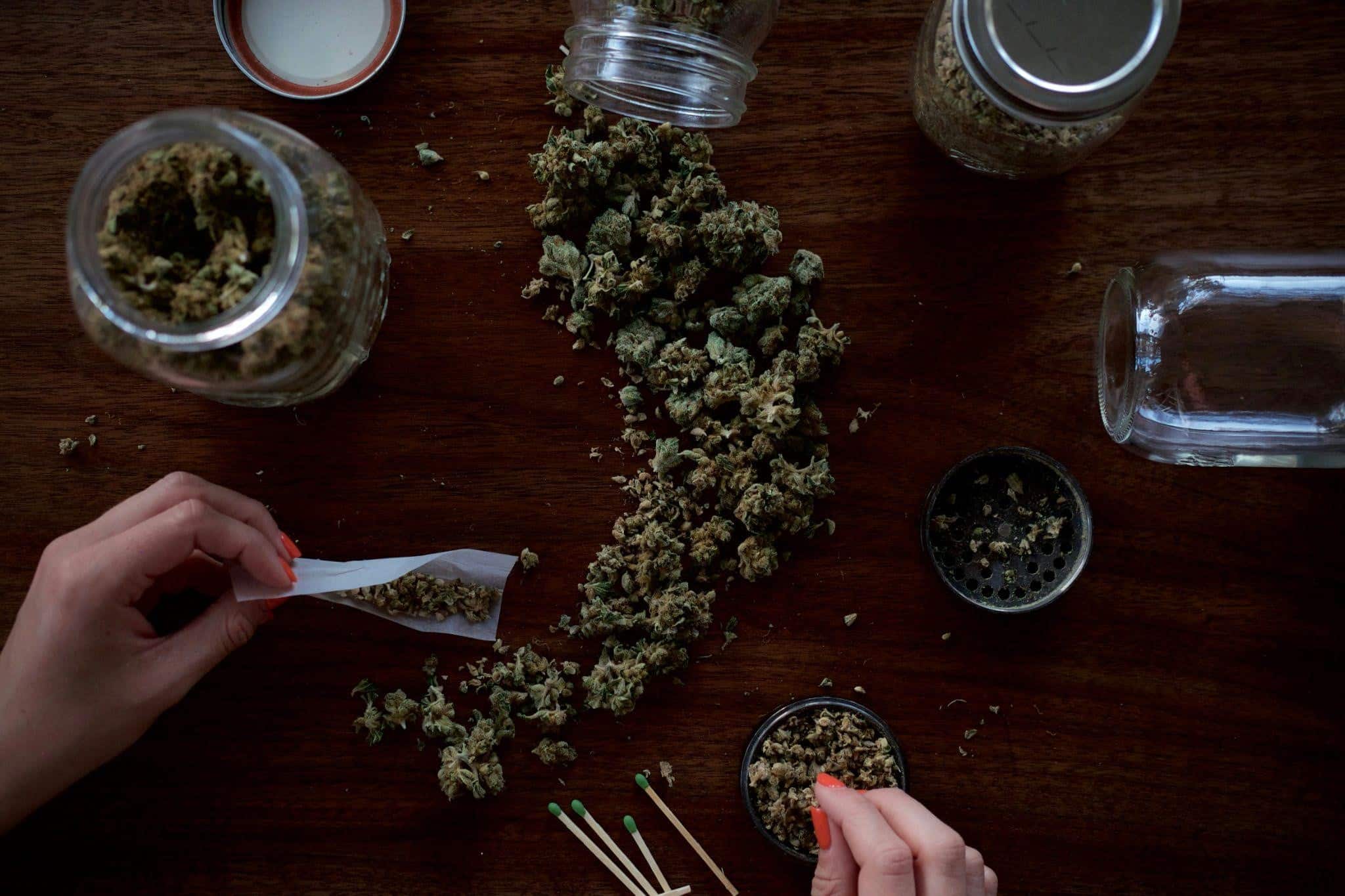THCA vs. THCP: Which is Stronger?
The subject of controversies, myths, and scientific studies, the cannabis plant has been garnering attention– both positive and negative– for decades. With the attention of the scientific community, more and more of the plant’s compounds have been discovered, with two standing out more than any other: THCP and THCA products.
These compounds, each with its unique structure and effects, are at the forefront of recent cannabis research, sparking interest not only among scientists but also within the medical community and among cannabis enthusiasts.
You may have heard some stories about both of these compounds, but not all of them are true. Let’s demystify these two compounds, comparing their chemical nature, biological effects, applications, and legal status to illuminate the nuances that make each noteworthy.
What is THCA?
Tetrahydrocannabinolic acid (THCA) is a cannabinoid acid found in the trichomes of the raw cannabis plant.
As the direct precursor to delta-9-THC (Δ9-THC), the best known psychoactive compound in cannabis, THCA itself is non-psychoactive in its raw form.
THCA’s significance lies not only in its role as a precursor to THC but also in its own inherent properties.
Unlike THC, raw THCA does not bind readily to the CB1 receptors in the human brain, thus not producing psychoactive effects. However, it is considered to have potential therapeutic benefits, including anti-inflammatory and neuroprotective properties.
Additionally, THCA can be transformed into psychoactive THC through simple heat application.
What Are the Effects of THCA?
Research into THCA has indicated several promising therapeutic effects. Its non-psychoactive nature makes it particularly interesting for medical applications where the benefits of cannabinoids are desired without the high associated with THC.
Anti-inflammatory Properties
THCA has shown significant promise for anti-inflammatory properties, which could make it beneficial for conditions like arthritis and Crohn’s disease. By inhibiting key inflammatory pathways in the body, THCA can help reduce pain and swelling without the psychoactive effects of THC.
Neuroprotective Effects
Studies have also highlighted THCA’s potential neuroprotective effects, suggesting it could play a role in protecting brain cells from damage. This is particularly relevant for diseases such as Alzheimer’s and Parkinson’s, where THCA could potentially help slow disease progression.
Other Potential Benefits
In addition to its anti-inflammatory and neuroprotective properties, THCA has been researched for its potential to reduce nausea and vomiting, combat proliferation of cancer cells, and even as a treatment for epilepsy and muscle spasms.
However, more research is needed to fully understand and confirm these effects.

How THCA Becomes THC: The Science of Decarboxylation
Decarboxylation involves the removal of a carboxyl group (COOH) from the THCA molecule, releasing carbon dioxide (CO2) in the process.
This reaction significantly alters the molecule’s ability to interact with the body’s cannabinoid receptors, specifically the CB1 receptors, which are primarily responsible for cannabis’s psychoactive effects.
Decarboxylation can occur in many different ways, but the two most common are through applying heat or as cannabis naturally dries and ages– one of them taking significantly less time than the other.
The Role of Heat
Heat is the catalyst for decarboxylation. The process can occur at various temperatures and over different timescales, whether slowly in the curing process of cannabis or quickly when cannabis is smoked or vaporized.
Cooking with cannabis also relies on this process, as it activates THC’s psychoactive effects in edibles.
In essence, this means that whenever you spark a THCA joint or hit a THCA vape, you’re triggering immediate decarboxylation, and thus inhaling THC with psychoactive effects.
Does THCA Get You High?
One of the most common questions regarding THCA is whether it can induce psychoactive effects similar to THC.
The answer depends on how you consume THCA.
Raw THCA does not produce a high. Its molecular structure, prior to decarboxylation, does not allow it to fit into the CB1 receptors in the brain in the way that THC does.
Decarboxylated THCA, however, becomes THC, meaning that if you smoke, vape, or cook THCA products, they will get you high.
What is THCP?
Tetrahydrocannabiphorol (THCP) is a cannabinoid that was discovered more recently, adding another layer of complexity to our understanding of the cannabis plant.
Similar in structure to THC, THCP has a unique feature that sets it apart: its alkyl side chain is longer, with seven carbon atoms compared to THC’s five. This seemingly small molecular difference has huge implications for its potency and efficacy.

The Discovery of THCP
Despite its rapid rise in popularity, THCP was only discovered in 2019– and it was a complete accident! Italian researchers were attempting to observe other compounds in the cannabis plant when all of a sudden, there it was: the gloriously potent THCP.
The discovery of THCP was monumental in the cannabis research community. It suggested that there might be many more cannabinoids with unique properties yet to be discovered, potentially offering new therapeutic avenues.
What are the Effects of THCP?
Given its structure, THCP is believed to be up to 30 times more potent than THC, but further research is needed to discover its exact potency.
This is all due to THCP’s longer alkyl side chain, which enhances its ability to bind to CB1 receptors in the endocannabinoid system. Due to this intensely increased potency, THCP is only recommended for those who have experience with cannabis, and only at low dosages at that!
Psychoactive Potential
THCP’s strong affinity for CB1 receptors means it could produce a more intense and longer-lasting psychoactive experience compared to THC.
This has sparked interest and caution in equal measure, as the compound could offer profound therapeutic benefits but also pose risks if not used responsibly.
Therapeutic Benefits
While research is still in the early stages, THCP’s strong interaction with cannabinoid receptors suggests it could have pronounced therapeutic effects, potentially more so than THC.
Its efficacy in pain relief, anti-inflammatory responses, and neuroprotection could surpass that of other cannabinoids, making it a subject of significant interest for medical research.
From what we know now, however, THCP possess the same therapeutic benefits as THC, including discomfort relief, stress reduction, and relaxation, but to much, much higher extents and accompanied with stronger psychoactive effects.

THCA vs. THCP: Which is Stronger?
When considering the strength and effects of THCA and THCP, it’s essential to differentiate between their psychoactive potentials and therapeutic benefits.
THCP is undeniably stronger in terms of psychoactivity due to its high affinity for CB1 receptors. THCA in its psychoactive, decarboxylated form, on the other hand, offers the same psychoactive capabilities as THC.
In short, THCP is much stronger than THCA.
Chemical Differences
The chemical structures of THCA and THCP dictate their interactions with the body’s endocannabinoid system.
While THCA must be decarboxylated to become psychoactive, THCP is inherently potent due to its structure, which allows for a stronger and more direct interaction with cannabinoid receptors.
Differences in Potency
In terms of potency, THCP is significantly more potent than THC, which, in turn, is the active form of THCA.
This increased potency means that THCP has a greater potential for both psychoactive effects– up to 30x as potent, as previously mentioned– and therapeutic benefits, albeit with an increased risk of adverse effects if not used cautiously.
Do THCA and THCP Have the Same Effects?
THCA and THCP do not have the same effects.
Decarboxylated THCA has the same effects as THC, while THCA offers stronger psychoactive effects. Although they both offer similar effects, the sheer distinction in potency makes using THCA and THCP vastly different experiences.
Best Uses for THCA
In its raw form, THCA is best utilized for its therapeutic properties. Its non-psychoactive nature makes it ideal for patients looking for relief without intoxication.
Decarboxylated THCA can work as a relaxation agent, allowing people to use cannabis as a stress reliever, discomfort reducer, and sleep aid, with strong psychoactive effects.
Best Uses for THCP
Due to its potency, THCP may be best suited for situations where intense cannabinoid effects are desired or required. THCP is, in essence, an extremely powerful version of THC, and thus will result in intense psychoactive effects.
This compound is useful in situations where users want to experience potent highs, such as when in need of relaxation, sleep, or discomfort reduction.

The Legal Landscape: THCA vs. THCP
The legality of THCA and THCP in the United States is nuanced, influenced by their derivation from cannabis. Federally, the 2018 Farm Bill legalized hemp-derived cannabinoids, but the legal status of individual cannabinoids can vary by state.
State-by-State Variations
Although the federal government has deemed hemp-derived cannabinoids, including both THCP and THCA products, legal as long as they contain 0.3% or less by dry weight basis, state laws may vary.
Some states agree with the federal government’s stance, making both of these compounds legal as long as they are derived from hemp. Other states, while disallowing hemp-derived cannabinoids, have legalized recreational marijuana, making these compounds available for their citizens.
A minority of states, however, have illegalized both, hemp and marijuana products, making both THCP and THCA unavailable in those jurisdictions.
The Safety Standard: Which is Safer?
Both THCA and THCP are considered safe when used responsibly and obtained from reputable sources. The primary safety concerns with THCP relate to its potency and the risk of overconsumption.
Responsible Use and Sourcing
For both compounds, sourcing from reputable producers who provide lab testing results is crucial to ensure purity and accurate dosing. When it comes to finding a reputable retailer for either compound, it’s up to you to do the research:
- Always look for lab tests, this ensures your products safety and purity.
- Go for American-grown hemp that’s free of pesticides and herbicides. Hemp is remarkably absorbent, and you don’t want those chemicals in your body.
- See what others are saying, via reviews on Google, on independent websites, or on social media.
THCP & Safety
Although THCP isn’t dangerous, its incredibly high potency makes the compound a bit risky, especially for those who don’t bode well with stronger psychoactive effects. When using this compound, it’s always best to start with very low doses and gradually adjust your intake, making finding a therapeutic psychoactive level without adverse effects easier.
Dosage Guidance for Both Compounds
Given the differences in potency and effects, dosage recommendations for THCA and THCP vary significantly:
Dosing THCA
Your THCA dosage depends on several factors, such as the type of THCA you’re taking and your tolerance:
- Low Tolerance: 2mg-5mg per use
- Medium Tolerance: 5mg-10mg per use
- High Tolerance: 10mg-20mg+ per use
Dosing THCP
Due to its potency, THCP dosages should be significantly lower than those for THC. Users should start with the minimal effective dose and adjust as needed according to psychoactive effect tolerance:
- Low Tolerance: 1mg-3mg per use
- Medium Tolerance: 3mg-5mg per use
- High Tolerance: 5mg-10mg+ per use
THCA vs. THCP: Final Thoughts
THCP and THCA products are an interesting avenue of research, but which one to use depends on the effects a user is looking for.
A benefit of THCA is that it can be used in either psychoactive or non-psychoactive forms, giving consumers a choice between the types of effects it can provide. THCP, on the other hand, is an extremely potent cannabinoid.
So, if you’re looking for wellness without a buzz, go for raw THCA. If you want fun, moderately strong psychoactive effects, decarboxylated THCA is your best bet. But if you seek a potent, extreme psychoactive experience, THCP is the cannabinoid for you.